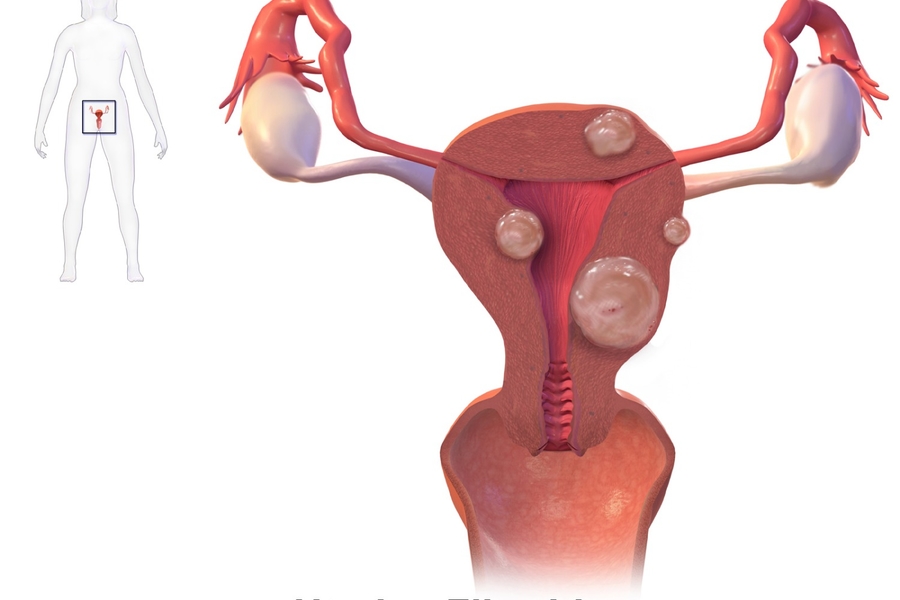
Complications With Fibroids To Be Mindful Of During Pregnancy
23 Apr 2018 | 4 min Read
Yatin Shah
Author | 3 Articles
Fibroids in womb during pregnancy have become quite common in the recent times.
These fibroids are usually detected accidentally during a routine ultrasound evaluation in the first trimester. With certain precautions, the entire pregnancy can stay devoid of complications, and fibroid removal surgery is performed during delivery by a caesarean section (C-section).
What are fibroid tumours?
Fibroids are nothing but outgrowths of muscles of the uterus. They are round and firm masses, having different sizes ranging from being pea-sized to as big as a melon. It is believed that about 60% of women develop fibroids. Most commonly, they appear during or just before menopause, and are uncommon during pregnancy. These fibroids are dependent on oestrogen hormone for their growth. Thus, if oestrogen levels reduce in the body, these fibroids shrink spontaneously. However, in a pregnant woman, they grow with the growing baby.

What causes uterine fibroids during pregnancy?
The exact reason is not known, but it is believed that hormonal changes and family history or genetics can result in uterine fibroids. Depending upon their size and location, they can result in certain complications during pregnancy.

What are the symptoms of uterine fibroids?
In majority of the cases, fibroids during pregnancy do not cause any symptoms, and are harmless. Very rarely, these fibroids can trouble you by giving you pain and discomfort.
Other fibroids symptoms include:
- Pain in the abdomen
- Pain in lower back
- Constipation
- Increased frequency to urinate
- Pressure or heaviness in lower abdomen
- Bleeding and can lead to abortion
Can these fibroids interfere with pregnancy?
Usually, fibroids do not interfere with pregnancy. In most cases, they alter the shape of fallopian tubes or block them, which can affect your future pregnancies. However, rarely, they can complicate your pregnancy. Early in pregnancy, they can cause vaginal bleeding or spontaneous abortion. In the latter half of pregnancy, they can cause preterm or early labour, abruption of placenta, breech presentation and placenta praevia.

Labour and delivery is the time period when these fibroids cause maximum trouble. They can lead to malpresentation of your baby, which means your baby might have breech presentation. This can be due to multiple fibroids or a single large-sized fibroid. This might make a normal vaginal delivery difficult. To avoid this complication, a caesarean section is often opted for. Apart from this, fibroids can cause profuse bleeding or retention of placenta.
Will fibroids affect my baby?
Several studies have shown that uterine fibroids are harmless to the growing baby during pregnancy. However, some studies have shown conflicting results indicating that fibroids in womb can slow down your baby’s growth. Large fibroids can even cause developmental abnormalities in your growing baby; such as dolichocephaly (sideways compression of baby’s head), torticollis (twisting of neck) and shorter hands or legs. However, these complications are very rare, and you can continue with your pregnancy under the supervision of your gynaecologist.
How can I get rid of fibroids?
The only possible treatment for fibroids is removal by surgery. But, fibroid surgery is usually performed during the C-section or after delivery. Fibroid removal is carried out as an emergency procedure, only if it undergoes red degeneration, which can cause severe bleeding during pregnancy and harm your baby. Rarely, your obstetrician may give you an option of removing the entire uterus (hysterectomy), in case you are not planning any future pregnancies.
What precautions do I need to take, if I have fibroids during pregnancy?
If you have fibroids that are painful, you can use ice-packs to relieve pain or you can even take painkillers (as per your gynaecologist’s advice). Usually fibroid pain subsides in a few weeks.
If the size of fibroid is too big or there are multiple fibroids, you may need bed rest, especially during the last trimester. You may require to undergo frequent ultrasound studies to keep an eye on the size of fibroid or to check the number of fibroids present.
Disclaimer: The information in the article is not intended or implied to be a substitute for professional medical advice, diagnosis or treatment. Always seek the advice of your doctor.
Also read: Everything You Need To Know About Placental Abruption
A


Related Topics for you
Suggestions offered by doctors on BabyChakra are of advisory nature i.e., for educational and informational purposes only. Content posted on, created for, or compiled by BabyChakra is not intended or designed to replace your doctor's independent judgment about any symptom, condition, or the appropriateness or risks of a procedure or treatment for a given person.
